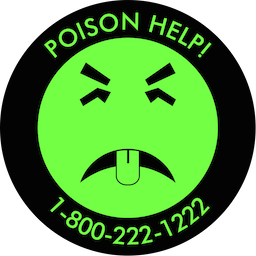Doctors’ Notes
BackPoison Prevention
Of all the important numbers to memorize, don’t forget this one: 1-800-222-1222.
It’s the nationwide, toll-free number that will connect you to your local Poison Control Center.
Each year more than 2 million people, more than half under age 6, have contact with a poisonous substance. As you know, children are naturally curious creatures, and will explore and ingest even bad-tasting substances around the house. And it’s not just the hazardous chemicals on the top shelf of your garage that are dangerous; even common household items can be deadly for children. Everything from toilet bowl cleaners, nail polish removers, and furniture polish to perfumes, mouthwashes, and, of course, medications can result in serious illness or death in children.
For those whose children have advanced beyond the toddler years, keep reading. Poisoning is a leading cause of injury and death in adolescence too, so it’s important not to let our guard down as the kids grow.
During this week dedicated to preventing accidental poisonings, why not take a look around your house and make sure everything hazardous is safely stored and kept away from exploring hands?
About 90% of poisonings occur at home, when caregivers are present but not paying direct attention.
Tips for Making Your Home Poison-Safe
- Always store medications in original containers, in a cabinet locked or out of reach. Try not to take medication in front of small children (they may try to imitate you later), and never pretend medication (including vitamins!) is candy.
- Remember “child-resistant” does not mean childproof; it just means it may take a child longer to open the cap!
- Make sure you don’t keep medications in your purse or diaper bag, and make sure grandparents and other caregivers do the same.
- Install safety locks on cabinets where harmful materials are stored and make sure they’re kept locked.
- Never use food containers (cups, bottles, dishes) to store anything harmful.
- Teach children what is not ok for them to touch/taste/play with. Use Mr. Yuk stickers (developed right here in Pittsburgh!) to mark things that are dangerous.
- Post the number for poison control prominently near your phone, or near the information you leave for a babysitter or grandparent, and program it into your phone.
What To Do if You Suspect Your Child Ingested Something Harmful
The first step (if your child is breathing and does not require a call to 911) is to call Poison Control Center. Of course you can always call our office, but in this case, it’s best to first call the Poison Control Center directly, and call us later. They have all kinds of information on every substance imaginable and will give you the next steps. While you’re dialing the number, remove the substance from the child.
Do NOT induce vomiting.
Giving syrup of ipecac is no longer recommended for several reasons. It can be dangerous to induce vomiting if a child ingested a chemical that burns, or a medication that causes seizures. Studies have also found that inducing vomiting doesn’t actually make a difference in the outcome of poisonings. Make sure grandparents and caregivers are aware of this recommendation.
If the poison contacted the child’s skin or eye, flush it well with cool water. If there are poisonous fumes, take the child outside into fresh air.
While on the phone with the Poison Control Center operator, you may be asked your child’s age, weight, any medical conditions they have or medications they are taking, what the substance was that they swallowed, an estimate of how much might have been ingested, and how long ago the ingestion occurred. Be prepared to answer those questions, and to follow their instructions.
In this case, truly an ounce of prevention IS worth a pound of cure.
For more tips on poison prevention and treatment, visit:
Dr. Amy Maddalena, a Kids Plus Doc since 2006, teaches our Pleasant Hills Office Expectant Parent Orientation sessions.
